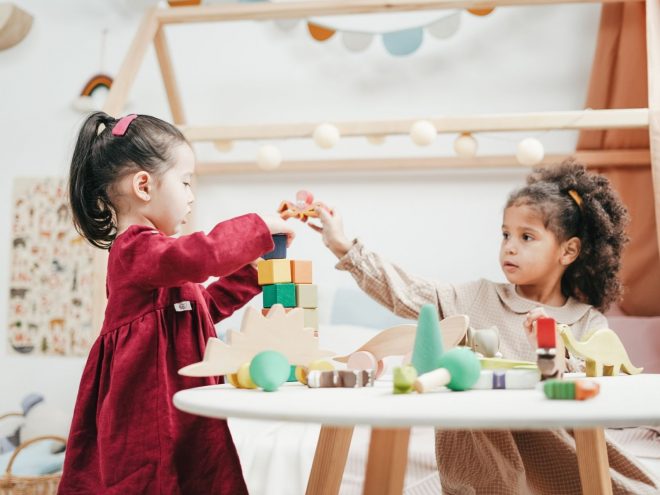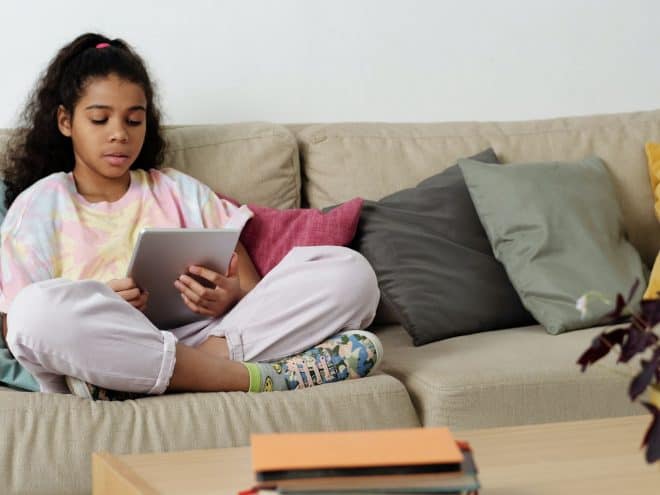Co-sleeping is one of those hot topic debate questions. And we aren’t talking co-sleeping with your tiny baby right now, we are talking about co-sleeping with your toddler. There are people completely for it and there are those completely against it. You might find some parents in the grey area, but not often. The arguments for and against it are strong, and this only leads to many parents being confused and unsure of what’s the best method.
Why Co-Sleeping is a Good Idea
Whether you start out co-sleeping with your baby the moment you come home from the hospital or start later out of desperation (ahem – guilty), you may find there are distinct advantages to snuggling in bed for a night’s sleep. For one, you actually get to sleep. If your child is waking often at night, and there’s no medical reason for it, they may sleep better next to you where they feel safe, loved and warm. If you’re breastfeeding and have to get up multiple times to feed your baby, co-sleeping will allow you to wake up enough to feed them without having to get out of bed and fully wake. Not to mention, co-sleeping is actually good for milk production and breastfeeding. If you work away from the home during the day, you don’t get much time with your child. You come home from work, have some dinner and the next thing you know it’s time for baths and bedtime. Before you know it, you don’t feel as connected to your child and long for the days of maternity leave, where you spent every waking moment with them. You probably can’t — or don’t want to — just quit your job, so what do you do? You co-sleep. You create the bond and connection in the moments before bed. You have your child close to you all night long, so being away from each other during the day is easier. Babies aren’t meant to be trained. Sleep-training is popular with our society, but it’s possible to take it too far and actually harm the relationship, causing more problems than it solves. Your baby is meant to be attached to you and co-sleeping solidifies that bond and makes your baby feel safe. Sharing a room or bed with you means you’re always within eyesight and just a hug away from comforting them. Another advantage of co-sleeping that isn’t often considered is traveling. When you’re traveling, you have to bring something for baby to sleep in if they don’t sleep in the bed with you. If you co-sleep in the same room, but don’t share a bed, co-sleeping still makes traveling easier. When you’re in new surroundings, sometimes babies and young children don’t sleep well when they’re unfamiliar with the space.
Why Co-Sleeping is a Bad Idea
Co-sleeping isn’t right for everyone. There is a common misconception that co-sleeping causes SIDS, though a recent study attributed 15% of SIDS cases to bed sharing and 36% to the baby sleeping in their own room. Still, the fear in new moms is real. Even though a study tells you it’s safe, if you’ve been “programmed” to believe putting your child in bed with you will kill them, you’re going to be too paranoid and scared to sleep. This will certainly not let you get more sleep, and will probably cause your baby to wake from all the constant checking you do. Another well-known disadvantage of co-sleeping is that baby can get in the way of your intimate relationship with your partner. Even if you co-sleeping means you’re just sharing a room with a baby, not a bed, many parents find it hard to get in the mood with a baby cooing in the background. If the baby shares the bed with you and you’re a light sleeper, you might wake up at their every move. Some infants move a lot and even make noises in their sleep. In this case, you definitely won’t get much benefit from co-sleeping. One of the main reasons parents cite when arguing against co-sleeping is the baby will get used to sleeping in their bed or in their room, and won’t be able to sleep alone. This is understandable, because you assume that you’re setting a pattern for your child and won’t be able to break them of the habit. However, there is no evidence to suggest that babies have trouble transitioning to their own bed or their own room when they are ready. You may even have a baby that gets excited about their own “big kid” bed and room and can’t wait to jump out of your bed and get into theirs. There are advantages and disadvantages to co-sleeping, just like any parenting issue you encounter. The fact is, no one can tell you if it’s right for you and your family. All you can do is stay informed and make your own decision based on the needs of you and your family.





